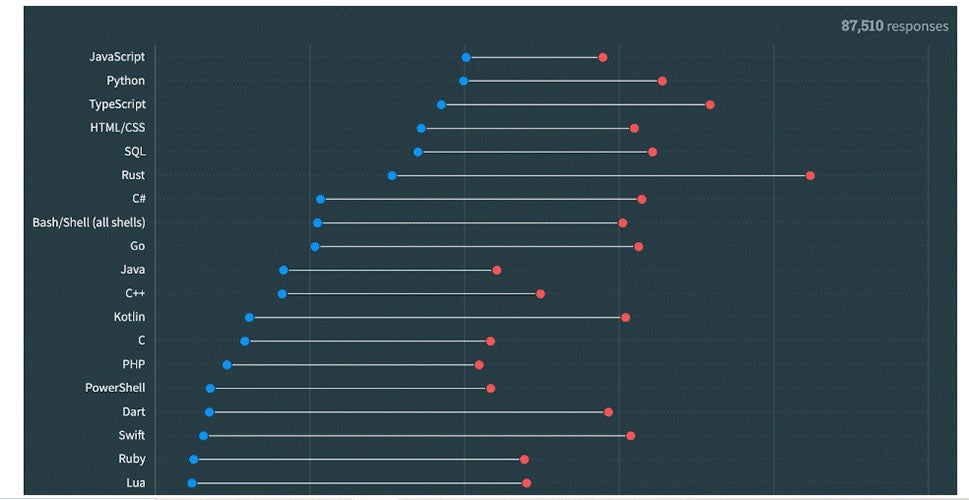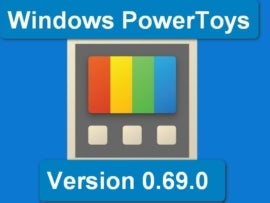
According to Stack Overflow’s 2023 developer survey, 44% of developers are already using artificial intelligence in their development process, and 26% plan to soon. Developers were also asked which AI tools they use, and out of the 21 options Stack Overflow listed this year, a vast majority are just using these two popular products: ChatGPT (83%) and GitHub Copilot (56%).
Stack Overflow survey author Erin Yepis observed that “professional developers may need time to adjust existing workflows and will most likely be motivated by their junior colleagues who are using AI tools while learning to code.”
Stack Overflow said it expects it will take time before developers start using more AI tools more broadly.
“Another factor that may be contributing to the slow adoption of AI tools into the development process is that professional developers don’t highly trust the accuracy of AI tools,” Yepis wrote in a blog accompanying the survey.
Of those using or planning to use AI tools, only 3% of respondents highly trust the accuracy they provide, and twice as many (6%) highly distrust them. “While the majority (39%) are somewhat trusting of AI tools, this response tells us that AI tools still need to prove their usefulness,” the survey’s authors said.
Approximately 90,000 people from all over the world submitted their top picks for tools and programming languages they are using, Stack Overflow said.
Jump to:
- What are the top programming languages for 2023?
- Did developers’ salaries increase in 2023?
- “Admired” and “desired” programming languages, other technologies
What are the top programming languages for 2023?
The top programming language for 2023 is JavaScript, with three other popular languages increasing their standing: Python, Bash/Shell (all shells) and C.
Nearly 64% of respondents use JavaScript, followed by almost 53% who use HTML/CSS. From tracking tags on Stack Overflow, the developer website gleaned that Python has been growing in popularity for the last three years, and this year, it moved up one spot to take the number three position at 49%. SQL placed fourth at almost 49%, and TypeScript came in fifth at nearly 39%.
Placing 10th is C, which the survey noted “is an interesting language to see a rise in popularity: It has not been in the top 10 for programming languages in the developer survey before despite being around since the 1970s.” Stack Overflow also pointed out that “the TIOBE index has C as the second most popular programming language as of June 2023 and has engagement numbers close to their number one language, Python.”
C is one of the most popular low-level languages and the language of choice in embedded programming within IoT devices, the survey authors said. They added that, according to Codecademy, C “powers almost every technological experience we have,” and for that reason, “it makes sense that developers are using C more than ever this year.”
SEE: The top programming languages employers want in 2023 (TechRepublic)
On average, the more popular a programming language is, developers report the less experience with it — around 10 years for Stack Overflow’s top three languages, and closer to 14 years for those languages reporting less than 1% usage, the survey said.
“Less experienced developers reporting higher usage of some programming languages possibly strengthens the argument that a lower barrier of entry into the job force increases their popularity among coders,” the survey’s authors said.
Did developers’ salaries increase in 2023?
Overall, the baseline for salary growth in 2023 for developers surveyed was 10% over last year.
“When controlling for comparable years of experience, we see a wide range of growth and decline amongst the programming languages — as much as 42% growth and 69% contraction year-over-year,” the survey authors said. “If we take a language’s popularity as a proxy for the prevalence of developers in the labor market, then we could assume that salaries for popular languages will fall and less popular ones will rise.”
However, Stack Overflow’s most popular languages — JavaScript, HTML/CSS and Python — all saw negative growth in median salary, ranging from 5% to 10% contraction. There was even less salary growth, ranging from 8 to 80% contraction with comparable experience for the three least popular languages: APL, Crystal and SAS.
If you’re looking at the same programming languages but adjusting for less than average experience (e.g., five years less experience than average per programming language), “we see marginal growth for our top three and double-digit growth for APL and Crystal,” the survey’s authors said, noting that SAS was filtered from the results because it did not receive enough responses.
“What we surmise is that developers’ negotiating power has been affected this year, and those with a few less years of experience and working in more niche languages have more salary upside this year than developers with more experience in more popular programming languages.”
“Admired” and “desired” programming languages, other technologies
This year, Stack Overflow added a new section to the survey results for tech trends for developers who have used or want to use certain programming languages, tools, environments and libraries that it has dubbed “admired and desired.”
To better gauge hype versus reality, Stack Overflow created a visualization (Figure A) that shows the distance between the proportion of respondents who want to use a particular technology (“desired”) and the proportion of users who have used the same technology in the past year and want to continue using it (“admired”).
Figure A

For example, JavaScript, ranked as the most popular programming language since 2011, “has a relatively short distance between admired and desired (<10 percentage points), while Rust, a top choice for developers who want to use a new technology for the past eight years, shows a wide distance (>60 percentage points),” the survey said.
“Rust is a language that generates more desire to use it once you get to know it than JavaScript,” the survey added. “Seeing this growth in admiration for certain technologies provides insight into what has staying power and what needs help in order to generate coveted evangelists to convert new users into ones that will stick around.”






